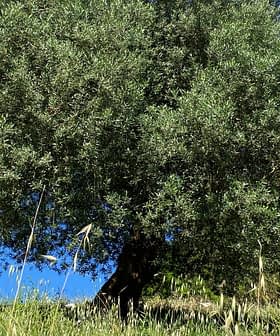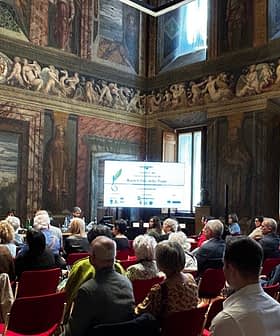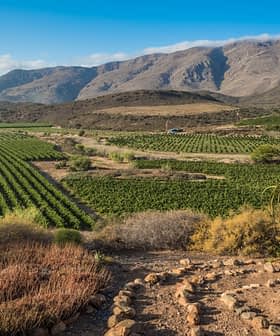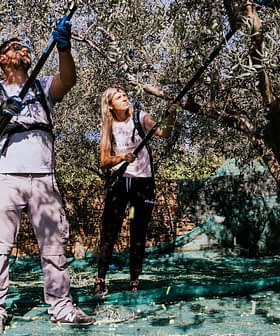Sustainability, Biodiversity Good for Business, This Campania Farmer Believes
Case d'Alto produces organic extra virgin olive oils in Irpinia from autochthonous varieties. Owner Claudio De Luca says focusing on sustainability improves quality.
 The harvest at Case d'Alto starts early to avoid olive fruit fly infestations. (Photo: Case d'Alto)
The harvest at Case d'Alto starts early to avoid olive fruit fly infestations. (Photo: Case d'Alto) Often referred to as the green heart of Campania for its natural beauty, the historical region of Irpinia – approximately corresponding to the province of Avellino – boasts a history of fine wine and award-winning extra virgin olive oil production.
“Our groves have given us so much, and the quality of our production allowed us to make ourselves known quickly also in the international market,” said Claudio De Luca, the owner of Case d’Alto.
Consumers aware of olive oil quality are still a niche group, and a lot of communication needs to be done. But those who try a great extra virgin olive oil do not return to a poorer one.
Initially, De Luca appeared destined to pursue a career in finance. Still, through a twist of fate, he founded the winery and olive grove in the limestone-rich volcanic clay soils around his hometown in the southern Italian region.
“I thought I would be working with banks after graduating in the economics of financial intermediaries at the University of Pisa in Tuscany,” De Luca said.
See Also:Producer Profiles“One day, I went back to my hometown, where I had something to take care of,” he added. “I thought it was temporary, but instead, I decided to stay and dedicate myself to agriculture.”
In 2011, De Luca established Case d’Alto as an organic farm named after the area renowned for producing Taurasi, a red wine made from Aglianico grapes. Along with this grape variety, De Luca started producing another autochthonous vine, Fiano, from ancient vineyards.
“My family has always made wine and olive oil for home consumption,” he said. “At that time, I used to travel often, and I came to appreciate the idea of staying and working in my land of origin.”

Claudio De Luca and his son Leonardo inspect the olive groves. (Photo: Case d’Alto)
“My original project involved installing a large photovoltaic system on a fallow plot of several hectares beside the vineyards,” De Luca added. “However, due to bureaucratic issues, it blew up, and in 2012, I decided to plant 700 olive trees on that empty land.”
Intending to continue the family tradition and focus on quality, he expanded the olive grove and experiment until he carried out the first significant harvest in 2016.
Today, the farm includes 1,000 trees, and another 700 will soon be planted. A centuries-old grove in Grottaminarda, which contains a mix of varieties, sits at the property’s core. It was used to ensure a constant yield from year to year, with the prevalence of Frantoio and Ogliarola Irpina.
After conducting agronomic surveys in Flumeri, which is particularly suitable for olive oil production, De Luca set up a seven-hectare orchard mainly composed of autochthonous Ravece. He produces a blend from Leccio del Corno, Leccino, Frantoio and other native varieties, including Marinese.
“Having started to collaborate with an importer in the U.S., we began to participate in the NYIOOC with our Ravece monovarietal, which has racked up three awards, giving us great satisfaction,” De Luca said. “In the 2022/23 crop year, we had a sharp decline in wine production, but it was compensated by a great olive harvest, even beyond expectations, culminating in a Gold Award.”
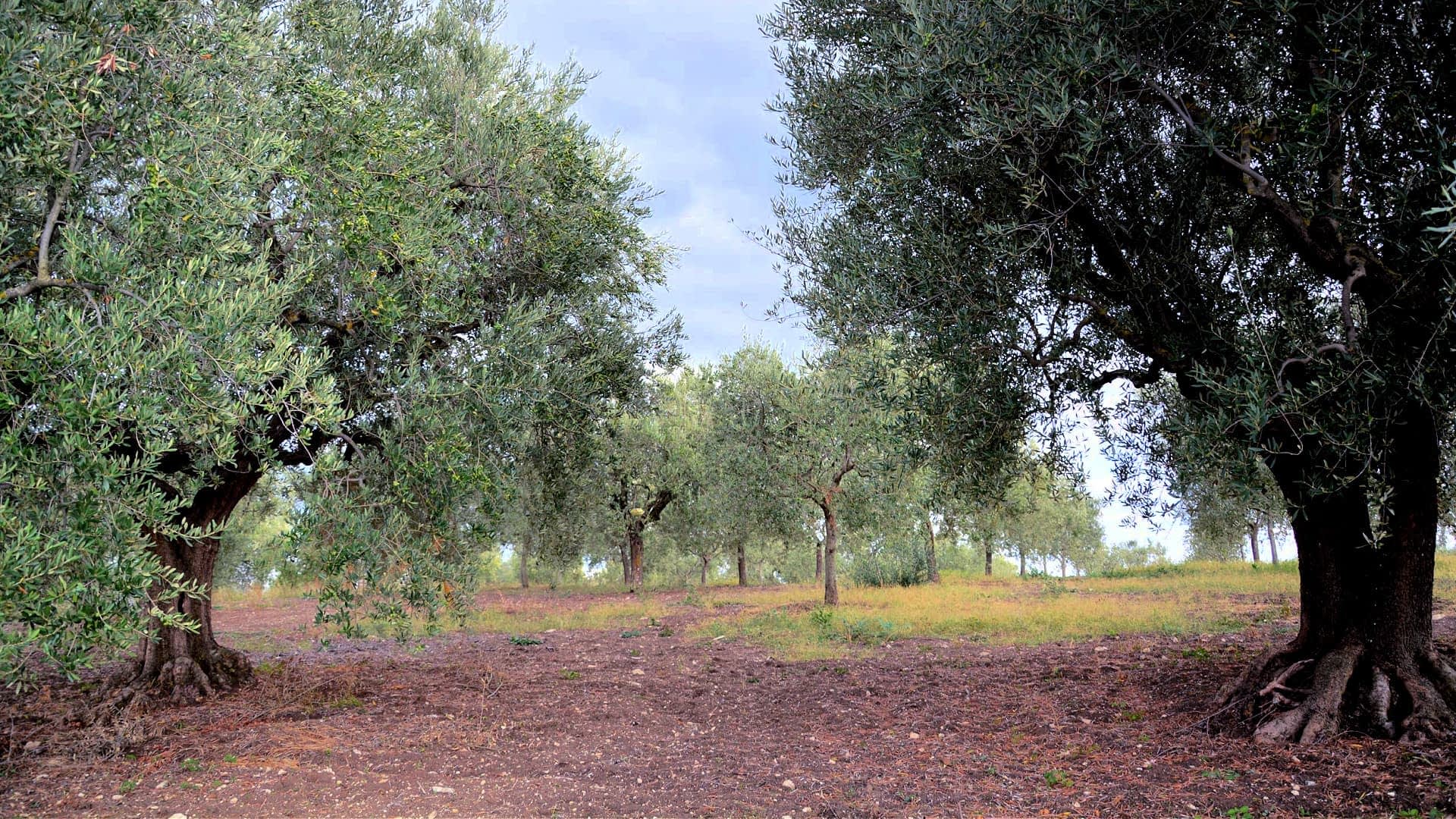
Case d’Alto has 1,000 trees, most of which are native varieties, with plans to plant 700 more soon. (Photo: Case d’Alto)
The main characteristic of Ravece is a note of green tomato leaves or tomato, depending on the fruit’s ripeness. This may be accompanied by hints of herbs, artichokes and apples, with bright, persistent bitterness and spiciness.
De Luca says Case d’Alto extra virgin olive oils are obtained from fruits pressed within six hours at Frantoio Barbieri, a state-of-the-art mill in Paternopoli, ten kilometers from the farm. Depending on the weather, the harvest usually starts by the end of September and ends in mid-October.
“Although Ravece is a late-ripening variety, we anticipate the operations for two main reasons,” De Luca said. “First, it is susceptible to the olive fruit fly, and since the organic management of the estate requires us to implement a prevention model to avert this pest, we can only collect the fruits before its arrival.”
“Second, the soil in Flumeri is mainly clayey, and when the rains start, this may cause problems with vehicle use,” he added. “Therefore, we need to work with favorable weather conditions. Still, an early harvest guarantees products with high polyphenol content.”
The company also relies on an Agriculture 4.0 system to prevent olive fruit fly infestations. This system consists of monitoring units installed in the olive grove that capture images and provide weather information.
Agriculture 4.0
Agriculture 4.0, also known as smart agriculture or precision agriculture, refers to integrating advanced technologies and data analytics into traditional farming practices to enhance efficiency, productivity and sustainability. This next-generation approach to agriculture leverages cutting-edge technologies such as the Internet of Things (IoT), artificial intelligence (AI), robotics, drones, satellite imagery, sensors and big data analytics to optimize various aspects of farming operations.
“Such advancements lead to higher production costs, to which extra efforts must be added, and therefore, expenses are needed to work on these steep slopes,” De Luca said.
“However, all this is offset by the high levels of quality that we can guarantee our consumers,” he added. “Smart tools also allow us to optimize resources and be more sustainable.”
The groves are planted on well-exposed hills between 400 and 600 meters of altitude and require no irrigation, allowing the company to use less water and achieve greater environmental sustainability.
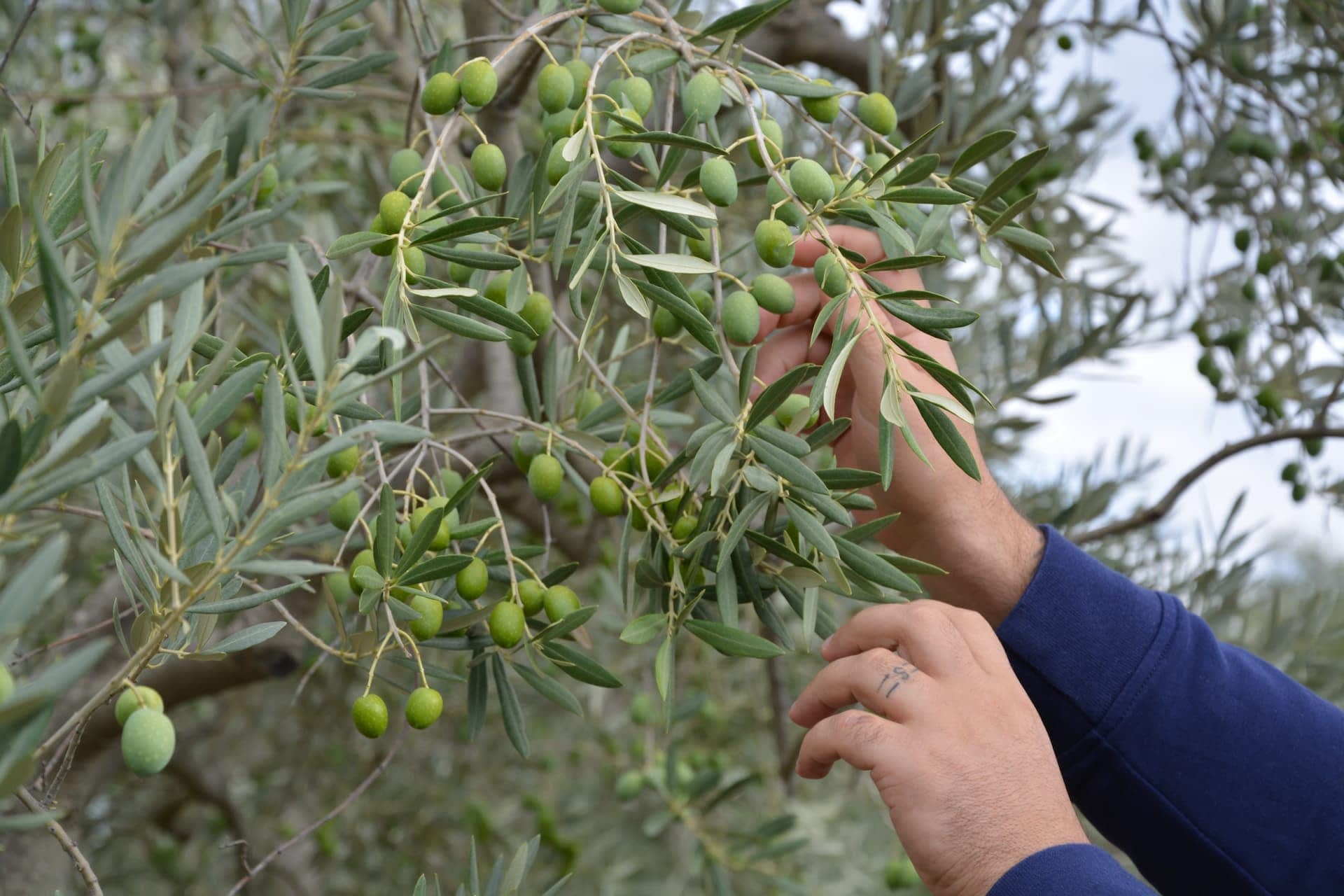
Many of the company’s 1,000 olive trees are the endemic Ravece, which Case d’Alto uses for its flagship monovarietal. (Photo: Case d’Alto)
“I believe that being sustainable for a company nowadays is necessary not only to cope with climate change,” De Luca said. “Preserving biodiversity and maintaining the landscape are strictly related to the production quality. Good products come from healthy environments.”
He added that preserving natural landscapes also helps promote oleotourism. “When people visit the farm, and I bring them to the orchards to admire these trees while tasting a slice of bread with the oil obtained from their fruits, they take home a stunning sensorial experience,” De Luca said.
He believes there is a unique synergy between wine and olive oil producers, who can use one product as a gateway for consumers to try the other.
“I show them the difference between a poor oil and our premium products, and the reactions are always positive, as they are amazed by their colors, flavors and aromas,” De Luca said.
“Consumers aware of olive oil quality are still a niche group, and a lot of communication needs to be done,” he concluded. “But those who try a great extra virgin olive oil do not return to a poorer one, and indeed, they start always to require the highest quality.”



